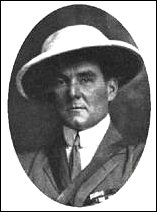The Guardian's Books Section has an article reputedly on Ian McEwan due to the title, "The Story of His Life," but a close reading shows more interest in his literary yang - Martin Amis - to his yin. Makes me wonder if the correct metaphor should be a binary star system?
In the absence of many young writers of consequence, McEwan found himself linked with the other enfant terrible of contemporary English fiction, Martin Amis. A year younger, Amis was just as precociously gifted. His first novel, The Rachel Papers, had been published to critical acclaim in 1973.
In all other respects, Amis was the polar opposite. Amis was a master of sentences, but a novelist who papered over the cracks in his narratives with the bravura exercise of style. McEwan was a more natural storyteller but stylistically reserved. And where McEwan was a self-made professional, Amis, the son of the celebrated author of the Fifties classic Lucky Jim, had been born to the purple. With an English first from Oxford, Amis was the latest metropolitan heir to a tradition of university wits.
By the late 1970s, a two-man 'new generation', Amis and McEwan were endlessly linked, possibly because they shared the same fashionable publisher, Tom Maschler of Cape. In practice, their literary careers were diverging. Amis attracted the headlines, published work of dazzling technical accomplishment (Money; London Fields; The Information; Time's Arrow) and became a feature of the metropolitan scene, 'the Mick Jagger of fiction'.
By contrast, McEwan applied himself to his craft and went for long walks in the Lake District. His first novels (The Cement Garden, The Comfort of Strangers, The Child in Time) seemed to some readers like over-inflated short stories, but there was a thematic consistency. He continued to exhibit a fascination with the corruption of Englishness and to explore the endless tyrannies of the past. Where Amis gloried in a macho-American prose, McEwan's literary voice was feminist and appealing to the Europeans.
Subscribe to:
Post Comments (Atom)

No comments:
Post a Comment